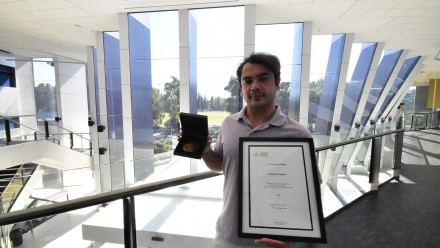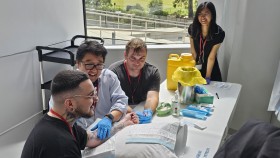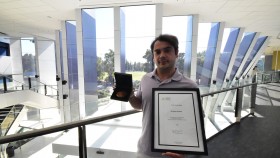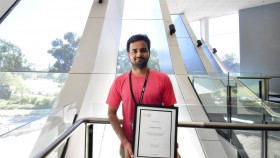Non-toxic drug to target cancer’s sweet spot
A new drug trial on a rare type of blood cancer is due to start early next year and could help in the broader fight against other forms of cancer.
Cancer researcher Dr Anneke Blackburn said the clinical trial on myeloma patients will target cancer’s sweet spot – the way it uses sugar differently to normal cells.
“If successful, it has the potential to be used not only in myeloma but in other cancers,” said Dr Blackburn, from The Australian National University’s John Curtin School of Medical Research (JCSMR).
Each year around 1,200 Australians are diagnosed with myeloma, which is an incurable blood cancer. There are limited treatment options available and the survival time is between three and five years.
Dr Blackburn will deliver a public lecture on the research and trial on Monday 27 October at the JCSMR.
Dr Blackburn normally researches breast cancer, but said myeloma was chosen for the drug trial because results could be measured within three months.
The trial, due to start early next year at The Canberra Hospital, will use dichloroacetate (DCA), an inexpensive, non-toxic drug which has been used for many years to treat patients with rare metabolic disorders. It is known to be safe and have minimal side effects.
Dr Blackburn said DCA would not kill cancer cells, but instead take away their drive to grow. The cancer cells are then more likely to die when treated with existing cancer drugs.
“Using DCA in combination with existing cancer drugs has the potential to reduce toxic side effects of the treatment, but without the loss of effectiveness,” she said.
The DCA trial will be conducted in collaboration with Dr James D’Rozario and others in the Haematology Department at The Canberra Hospital, and is being funded by a grant from The Canberra Hospital Private Practice Trust Fund.
In parallel, laboratory studies into the effects of DCA on myeloma cells will be conducted at JCSMR with funding support from the Cancer Council ACT.
Dr Blackburn will be presented with the 2014 John James Foundation Tony Ayers Prize for Excellence in Research in Translational Medicine at the ANU College of Medicine, Biology and Environment before her public lecture at 6pm.














